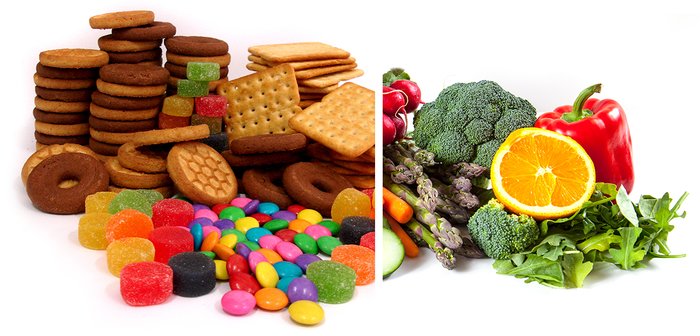If you can make it through the rollercoaster of emotions the first few weeks of a diet can bring, you'll start to experience the benefits of eating the right foods in the right portions. You'll have increased energy, focus, and exercise performance; improved body composition; and, of course, you'll lose weight.
Yet so few dieters make it through those first few weeks.
To improve your chances of success, you need to understand one important thing: Even though you're doing your health a favor by going on a diet, your body interprets it as stress—and it fights back in surprising, but very logical, ways.
When your metabolism isn't getting all the calories it's used to, it slows down your metabolism to conserve calories. But even with a slowed-down metabolism, you still need fuel. The point of a diet is to take in fewer calories but make them the best calories possible.
Phase 1: The Initial Drop
Realistic weight loss for an average person is 0.5-1.0 percent of total body weight per week, so 1-2 pounds for a 200-pound person. Losing weight any faster than this puts you at risk for muscle loss and binge-like dieting behavior.
Yet during the first 5-7 days of a diet—and only then—you might lose more than the recommended amount of body weight. It's not unusual for a 200-pound person to drop 4-8 pounds within the first few days!

This happens for a few reasons. First, you're no longer chowing down on junk food all day. Those cookies, snack bars, and ice cream that had prominent places in your pre-diet meals are off the menu now, replaced with wholesome, lower-calorie options.
Second, you're probably eating fewer carbohydrates now. Not only does this mean you're taking in fewer calories, but you're also dropping water weight. For every gram of carbohydrate stored in your muscles as glycogen, 3-4 grams of water are stored, too.[1] By eating fewer carbs, you're also losing this water weight.
Within just a few short weeks, the scale will stop giving you these wonderful bits of good news, so enjoy them while you can.
Phase 2: The Plateau
In this phase, your weight loss will slow down, in all likelihood. Your body is under stress now. It's not receiving the calories it's grown accustomed to, so it's downregulating everyday processes to conserve energy.
In other words, the calorie total your body struggled to operate on at the start of your diet has now become your new normal. Your body has adapted to your new diet.
Phase 3: The Tipping Point
This phase is when a lot of people slip up. Their body is learning to live on fewer calories, but they're still feeling hungry and tired. In fact, many people feel hungrier and more tired by this point than they have since the start of the diet.

This is a tough moment for anyone. You've cut way back on your calories, but you aren't losing any weight. At this point, you could go either way: Dig deeper into your diet, or go back to cookies and cakes. If you do the former, you're in the minority.
Phase 4: The Adjustment
If you want to start losing weight again, you've got to get back into a caloric deficit by reducing your calories even further, increasing your exercise, or both.
If you opt to reduce calories, cut 10-20 percent of your target daily intake. So if you're consuming 1,800 calories a day, knock off an additional 180-360 calories.
Alternatively, reduce your calories by continuing to eat what you do, but also hitting the treadmill, elliptical, or any piece of equipment that estimates calories burned. Your goal here is to do low-to-moderate intensity workouts until you hit that daily caloric-reduction number. How long this takes depends on the kind of shape you're in.

Either way you go, you're likely to continue feeling hungry. Try drinking more water and eating more vegetables to achieve a feeling of fullness. Because when your brain senses that your stomach is full, it stops pinging you with hunger signals.
The Perfect Time to Start a Diet!
Sorry, that's a joke; there is no perfect time to start a diet. Give yourself a day or two to organize yourself, pick up the foods you need, and say goodbye to double bacon cheeseburgers and chocolate ice cream.
Then it's time to jump in with both feet.
And while it's normal to give yourself a little flexibility, it's also a good idea to stay on the straight and narrow at least for the first couple of weeks. Once you feel confident that you can commit to the diet, you can experiment and find other ways to get the nutrients you need.
References
- Kreitzman, S. N., Coxon, A. Y., & Szaz, K. F. (1992). Glycogen storage: illusions of easy weight loss, excessive weight regain, and distortions in estimates of body composition. The American Journal of Clinical Nutrition, 56(1), 292S-293S.

